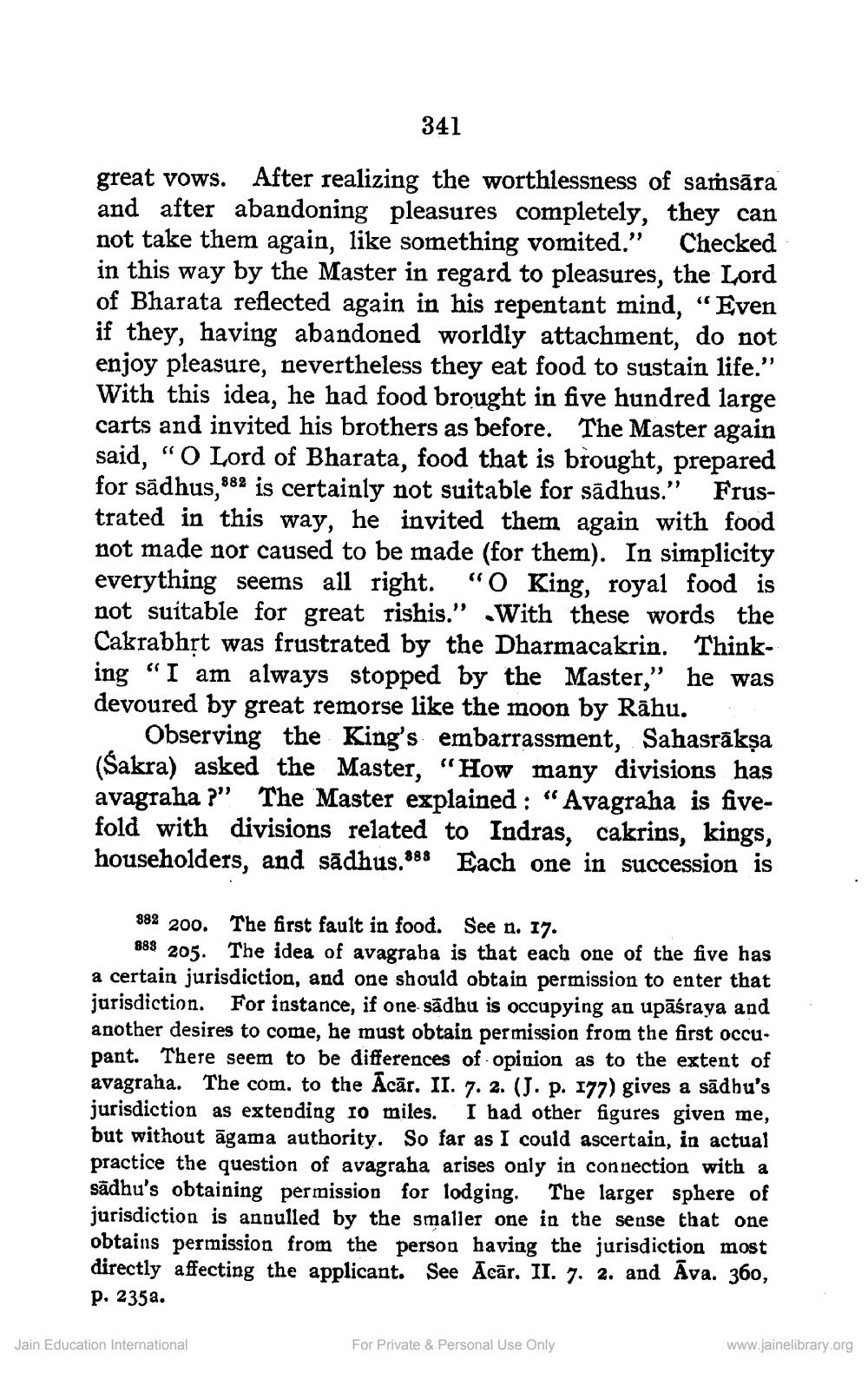________________
341
great vows. After realizing the worthlessness of samsara and after abandoning pleasures completely, they can not take them again, like something vomited." Checked in this way by the Master in regard to pleasures, the Lord of Bharata reflected again in his repentant mind, "Even if they, having abandoned worldly attachment, do not enjoy pleasure, nevertheless they eat food to sustain life." With this idea, he had food brought in five hundred large carts and invited his brothers as before. The Master again said, "O Lord of Bharata, food that is brought, prepared for sadhus,882 is certainly not suitable for sadhus." Frustrated in this way, he invited them again with food not made nor caused to be made (for them). In simplicity everything seems all right. "O King, royal food is not suitable for great rishis." With these words the Cakrabhṛt was frustrated by the Dharmacakrin. Thinking "I am always stopped by the Master," he was devoured by great remorse like the moon by Rahu.
Observing the King's embarrassment, Sahasrākṣa (Sakra) asked the Master, "How many divisions has avagraha ?" The Master explained: "Avagraha is fivefold with divisions related to Indras, cakrins, kings, householders, and sadhus. Each one in succession is
882 200. The first fault in food. See n. 17.
888 205. The idea of avagraha is that each one of the five has a certain jurisdiction, and one should obtain permission to enter that jurisdiction. For instance, if one sadhu is occupying an upāśraya and another desires to come, he must obtain permission from the first occupant. There seem to be differences of opinion as to the extent of avagraha. The com. to the Acar. II. 7. 2. (J. p. 177) gives a sadhu's jurisdiction as extending 10 miles. I had other figures given me, but without agama authority. So far as I could ascertain, in actual practice the question of avagraha arises only in connection with a sadhu's obtaining permission for lodging. The larger sphere of jurisdiction is annulled by the smaller one in the sense that one obtains permission from the person having the jurisdiction most directly affecting the applicant. See Acar. II. 7. 2. and Ava. 360,
p. 235a.
Jain Education International
For Private & Personal Use Only
www.jainelibrary.org




